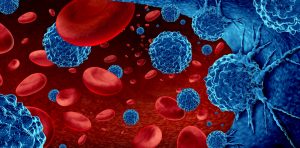
Roche oncology sales shine but profits dip
pharmafile | January 29, 2015 | News story | Sales and Marketing | Kadcyla, Perjeta, Roche, avastin, fourth quarter, oncology, q4
Roche has posted a mixed bag of financial results complemented only by strong growth in its oncology and immunology divisions.
Revenue in the fourth quarter was up to $14 billion, a growth of around 2% from last year. But despite it also posting a 16% drop in annual profit the Swiss-based pharma firm insists that sales in 2015 will recover due its ‘strong’ product portfolio and pipeline.
The 2% progression in Q4 trade was driven by sales of Roche’s breast cancer drugs Kadcyla (trastuzumab emtansine) and Perjeta (pertuzumab) which climbed by 20 per cent.
Avastin (bevacizumab) – recently granted priority review for the treatment of women with persistent, recurrent or metastatic cervical cancer – also saw sales increase by 6% to $7.1 billion.
Roche’s chief executive Severin Schwan, comments: “We made good progress in 2014 with solid growth in both divisions driven by our newly-launched medicines and diagnostic tests. In addition, we have now made 10 targeted acquisitions to complement our existing portfolio in pharma and diagnostics.”
Q4 core earnings per share increased by 5% to $15.8 which, according to a Reuters poll, missed an average forecast of $16.3.
Michael Leuchten an analyst at Barclays, argues that the results are “hardly one for the history books.” He told Bloomberg: “This is a less inspiring set of results than we have seen from Roche in the past.”
A handful of oncology treatments contributed imensely to the company’s sales during the financial period. HER2-positive breast cancer drug Herceptin (trastuzumab) helped Roche’s pharma division grow by 4% to $40.6 billion in total sales.
The company’s oncology platform was also boosted this month following the announcement of a huge billion-dollar investment in cancer genomics research firm Foundation Medicine.
Through the deal Roche now owns between 52% and 56.3% of the genetic analysis company, and will play a vital role in the firm’s plans for future medicines and diagnostic solutions for cancer patients.
Last year wasn’t as plain sailing for its chemotherapy drug Xeloda (capecitabine) which is a therapy usually given to treat cancer of the colon, rectum or pancreas. It now faces generic opposition and was associated with causing very rare cases of skin reactions in patients in 2013.
Aside from oncology products, Roche is hoping to expand in disease areas such as neuromuscular disease – which affects the nerves that control the muscles – along with Alzheimer’s.
Just weeks ago the company acquired France-based biotech Trophos in a deal which will cost Roche up to $533 million, and give it access to a promising spinal muscular atrophy (SMA) Phase II drug in olesoxime (TRO19622).
The business reported total year earnings of up to $52.5 billion, which translates as an increase of 1% from 2013.
Over the year Roche has made a total of 10 acquisitions to complement its current portfolio, including idiopathic lung fibrosis developers InterMune, and Seragon Pharmaceuticals.
Tom Robinson
Related Content

Roche’s Alecensa approved by FDA as lung cancer treatment
Roche has announced that the US Food and Drug Administration (FDA) has approved Alecensa (alectinib) …

Genentech’s Columbi meets primary endpoint in phase 3 trial for lymphoma treatment
Genentech, part of the Roche Group, has announced that its phase 3 STARGLO trial has …

Curve Therapeutics’ CSO publishes research on HIF inhibition for cancer treatment
Curve Therapeutics has announced that its chief scientific officer, Professor Ali Tavassoli has published research …








